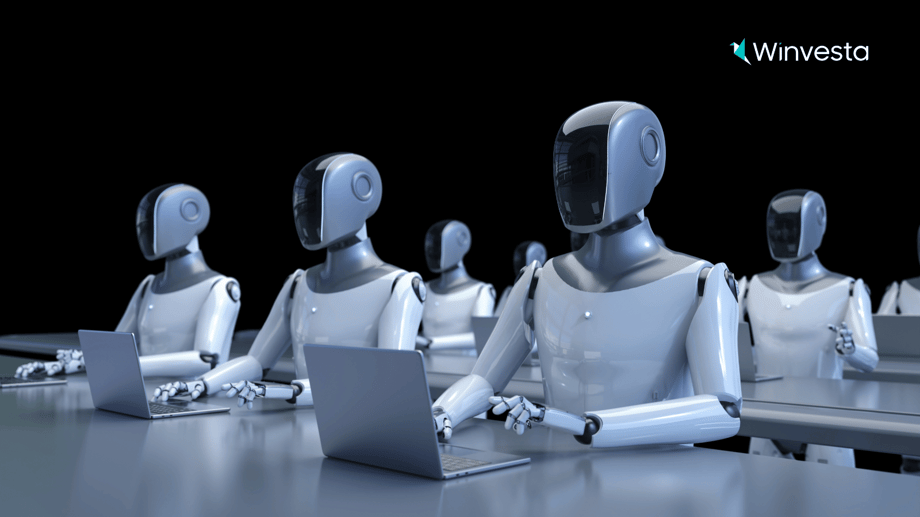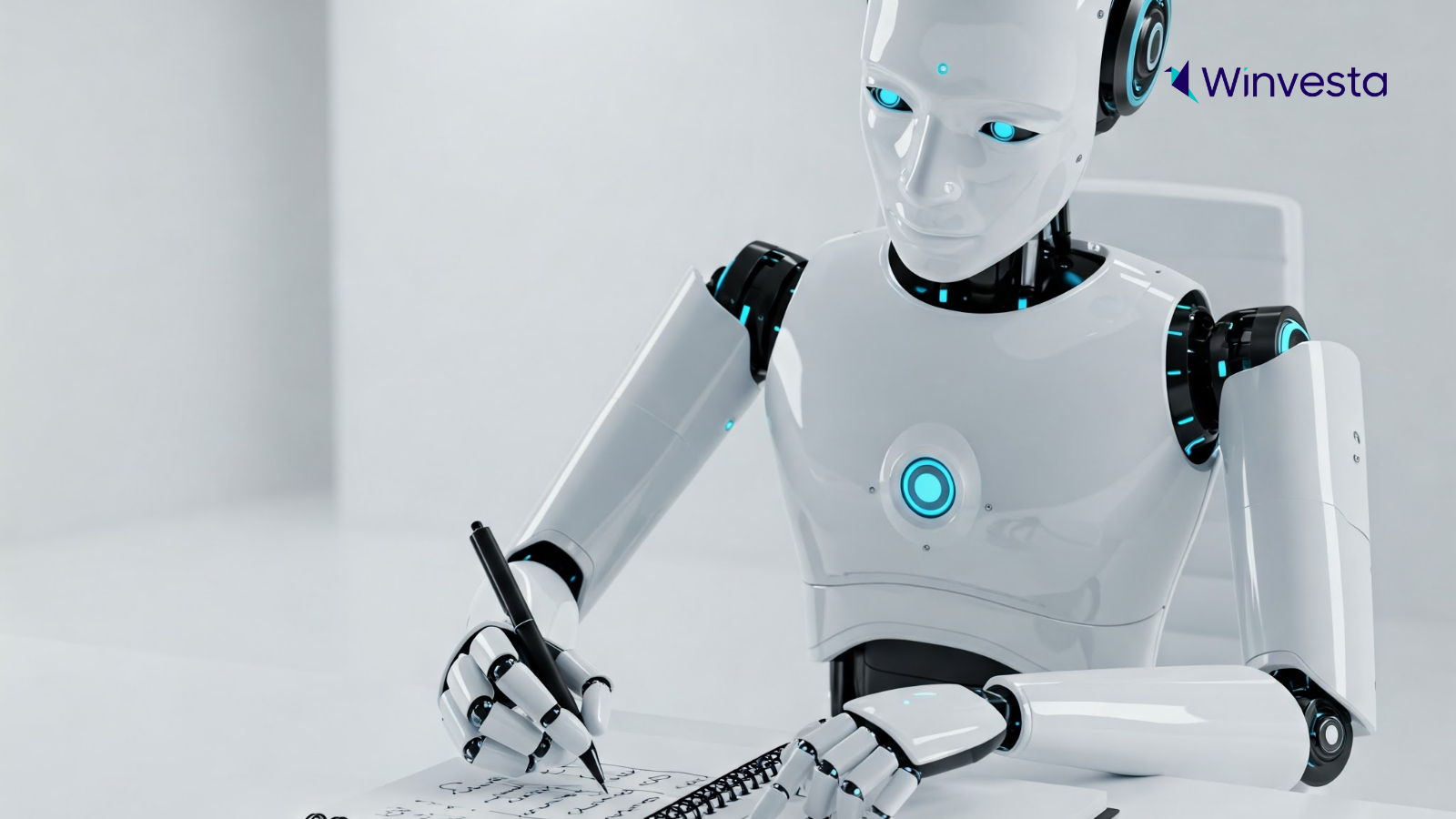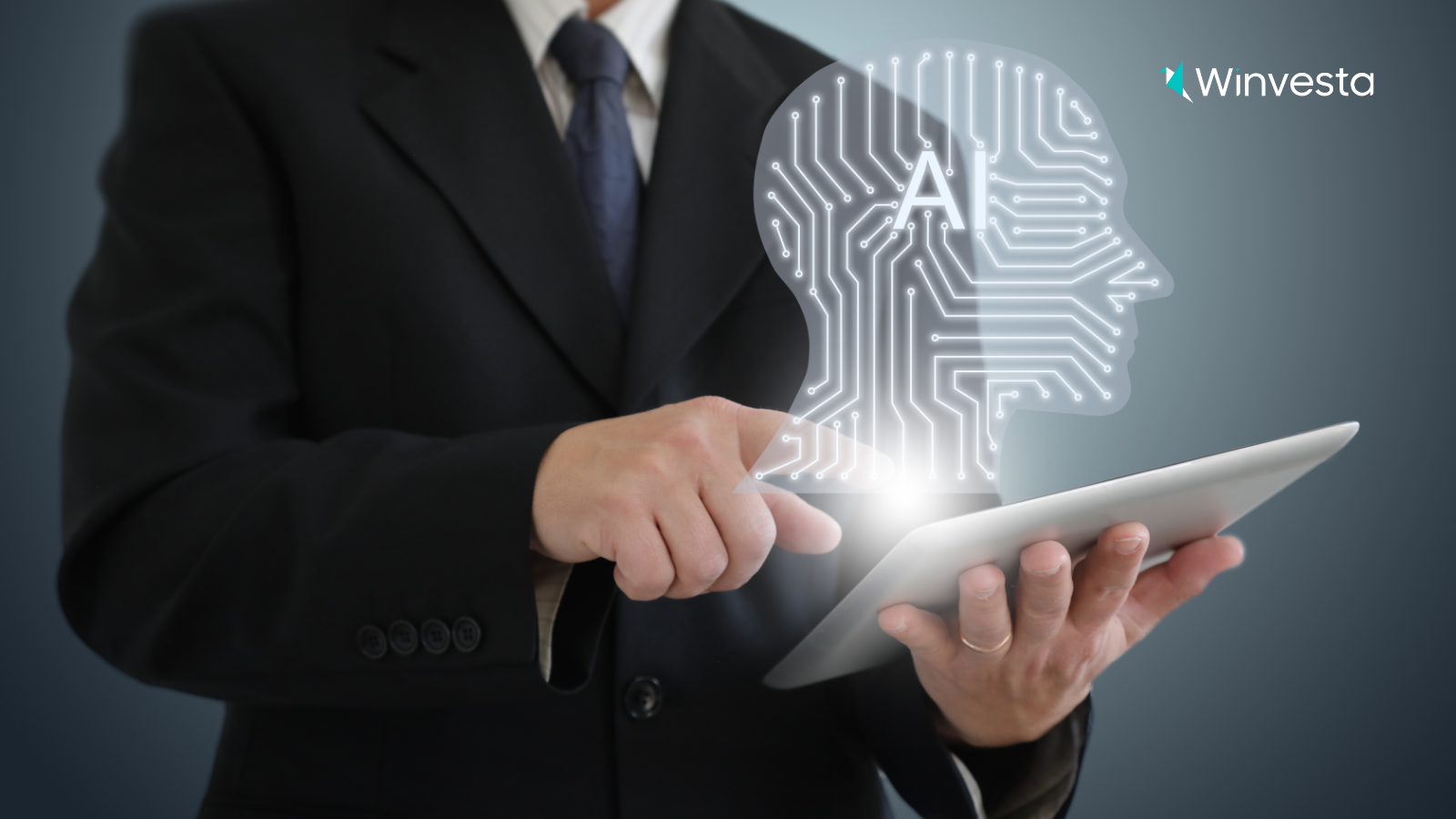Contents
How Agentic AI is redefining collaboration and productivity
4 minutes read
23 April 2025

The workplace is evolving at an unprecedented pace, and one of the key drivers of this transformation is agentic AI. Unlike traditional AI, which typically requires human input to function, agentic AI operates autonomously. It perceives its environment, makes decisions, and executes tasks without the need for constant oversight. This ability to act independently makes it a game-changer in enhancing collaboration, productivity, and decision-making.
In this blog, we’ll explore how agentic AI is not just a tool, but a proactive collaborator that has the potential to redefine how we work, interact, and create.
The role of agentic AI in the future of work
The role of agentic AI in the future of work is transformative. As businesses increasingly look to integrate this advanced AI technology, it offers several key benefits, such as improving productivity, enhancing collaboration, and supporting decision-making processes.
1. Boosting productivity
Agentic AI excels in automating repetitive and time-consuming tasks, which frees up human workers to focus on more strategic or creative tasks. Some areas where agentic AI boosts productivity include:
-
Automating data entry, scheduling, and basic customer queries.
-
Handling logistics, inventory management, and order fulfilment.
-
Reducing errors by performing tasks with high precision.
By automating mundane tasks, employees can redirect their efforts towards high-value activities, thus improving overall productivity.
2. Enhancing collaboration
In today’s fast-paced work environment, collaboration is key. Agentic AI acts as a proactive team member rather than just a passive tool. It offers insights, facilitates communication, and manages tasks without requiring continuous supervision.
Examples of how agentic AI enhances collaboration include:
-
Coordinating between different departments, ensuring seamless hand-offs and shared access to real-time data.
-
Offering insights during brainstorming sessions to help teams make informed decisions.
-
Suggesting improvements or modifications to workflows to optimise efficiency.
3. Supporting decision-making
The sheer volume of data available in today’s business environment can be overwhelming, making timely and informed decision-making a challenge. Agentic AI helps by analysing large datasets and providing actionable insights that empower leaders to make decisions faster and with more accuracy.
Whether it’s predicting trends, identifying risks, or suggesting opportunities, agentic AI enables businesses to act swiftly and decisively.
Key benefits of agentic AI as a collaborator
The integration of agentic AI into the workplace can yield numerous benefits:
1. Streamlining operations
By automating routine tasks such as resource allocation and compliance checks, agentic AI helps eliminate bottlenecks and inefficiencies. This leads to smoother operations and faster delivery of services.
2. Fostering innovation
With mundane processes offloaded to AI, employees are free to engage in more creative thinking and problem-solving. This can foster a culture of innovation within organisations, where human workers are encouraged to think outside the box and explore new ideas.
3. Reducing errors
Agentic AI performs tasks with a high degree of accuracy, reducing human error. In industries like finance, healthcare, and logistics, this level of precision is crucial for minimising costly mistakes and ensuring quality.
4. Scaling efficiency
As businesses grow, so do their workloads. Agentic AI can scale seamlessly to handle the increased demand without requiring additional human resources. This allows organisations to maintain high levels of productivity and efficiency during periods of growth.
Challenges and ethical considerations
While agentic AI offers transformative benefits, its integration into the workplace raises several challenges and ethical concerns that businesses must address:
1. Accountability concerns
When AI systems make autonomous decisions, it can be difficult to determine who is responsible for those decisions. Businesses need to establish clear accountability frameworks to ensure that AI-generated decisions align with ethical and legal standards.
2. Transparency issues
Agentic AI often operates as a "black box," meaning its decision-making process can be opaque and difficult to understand. To address this, companies should adopt Explainable AI (XAI) frameworks to increase transparency and foster trust among employees and customers.
3. Data security risks
AI systems handle vast amounts of sensitive data, which poses potential privacy risks. Businesses must implement robust security measures, including encryption and data monitoring, to protect against cyber threats and data breaches.
4. Employee upskilling
As AI becomes more integrated into workplaces, employees will need to develop new skills to collaborate effectively with AI systems. This includes focusing on creativity, emotional intelligence, and strategic thinking to complement AI’s capabilities.
Real-world applications of agentic AI
Agentic AI is already making waves across multiple industries. Here are a few examples:
| Industry | Example applications |
|---|---|
| Customer service | AI chatbots resolve complex customer queries autonomously. |
| Healthcare | AI aids in diagnostics and automates patient scheduling, reducing wait times by 40%. |
| Marketing | AI automates campaign management and provides personalised recommendations. |
| Workforce management | AI optimises resource allocation and tracks productivity via intuitive dashboards. |
These examples show how businesses are already reaping the benefits of agentic AI in real-world scenarios.
Preparing for a collaborative future
To successfully integrate agentic AI into the workplace, businesses should focus on the following strategies:
1. Rethinking workflows
Companies must adapt their workflows to accommodate AI collaboration. This could mean automating routine tasks while ensuring that strategic decisions and creative tasks remain human-centric.
2. Investing in employee training
Upskilling employees is crucial for AI adoption. Providing training in areas such as creativity, emotional intelligence, and strategic thinking will allow workers to collaborate effectively with AI systems.
3. Building trust in AI systems
Transparency is key to building trust in AI systems. By adopting explainable AI frameworks and ensuring ethical deployment, businesses can foster confidence in AI’s capabilities and reduce scepticism.
Agentic AI is transforming the workplace by enhancing collaboration, boosting productivity, and supporting decision-making. Its autonomy allows businesses to streamline operations, foster innovation, and reduce errors. However, to fully unlock its potential, businesses must address challenges related to accountability, transparency, and employee upskilling. By embracing agentic AI responsibly, organisations can build a future where humans and AI collaborate to achieve unprecedented levels of productivity and success.
Meet your new AI teammate
The future of work is here. AI that works with you, not instead of you.
- Never stop scaling
- 24/7 autonomous execution
- Scale your productivity with AI.
Frequently asked questions about how Agentic AI helps collaboration and productivity


Contributed by Denila Lobo
Denila is a content writer at Winvesta. She crafts clear, concise content on international payments, helping freelancers and businesses easily navigate global financial solutions.



